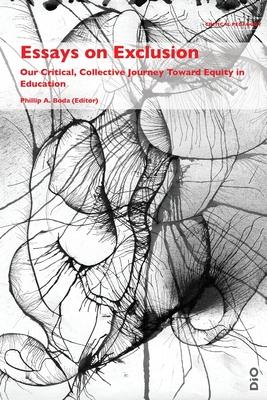Based on the premise that narratives hold power and affect how people view themselves and Others, Essays on Exclusionbrings together diverse disciplinary scholars, in education and beyond, to illuminate the promise of understanding how stories about one's Self, and their juxtaposition to those that are Othered, influence how inclusion/exclusion operate in and outside schools. From philosophers to pre-service teachers, readers of this volume will learn more complex and nuanced perspectives toward exclusion often relegated to the margins, but no less important when pursing equity in various social contexts such as schools. By the end of the book readers will be more familiar with an understanding of equity and exclusion through a holistic view by becoming more attentive to intersectional analyses in their approach toward equity. Coming from a standpoint that exclusion, oppression, and marginalization become instituted as a function of certain positionalities being valued more than others, Essays on Exclusion draws on diverse narratives that are important in understanding how to operationalize equity starting from recognizing people's positionalities being subjected to exclusion. This volume is appropriate for foundation courses in philosophy, education, or cultural studies, as well as higher level graduate courses focused on urban education and equity more broadly.

Essays on Exclusion: Our Critical, Collective Journey Toward Equity in Education
Based on the premise that narratives hold power and affect how people view themselves and Others, Essays on Exclusionbrings together diverse disciplinary scholars, in education and beyond, to illuminate the promise of understanding how stories about one's Self, and their juxtaposition to those that are Othered, influence how inclusion/exclusion operate in and outside schools. From philosophers to pre-service teachers, readers of this volume will learn more complex and nuanced perspectives toward exclusion often relegated to the margins, but no less important when pursing equity in various social contexts such as schools. By the end of the book readers will be more familiar with an understanding of equity and exclusion through a holistic view by becoming more attentive to intersectional analyses in their approach toward equity. Coming from a standpoint that exclusion, oppression, and marginalization become instituted as a function of certain positionalities being valued more than others, Essays on Exclusion draws on diverse narratives that are important in understanding how to operationalize equity starting from recognizing people's positionalities being subjected to exclusion. This volume is appropriate for foundation courses in philosophy, education, or cultural studies, as well as higher level graduate courses focused on urban education and equity more broadly.